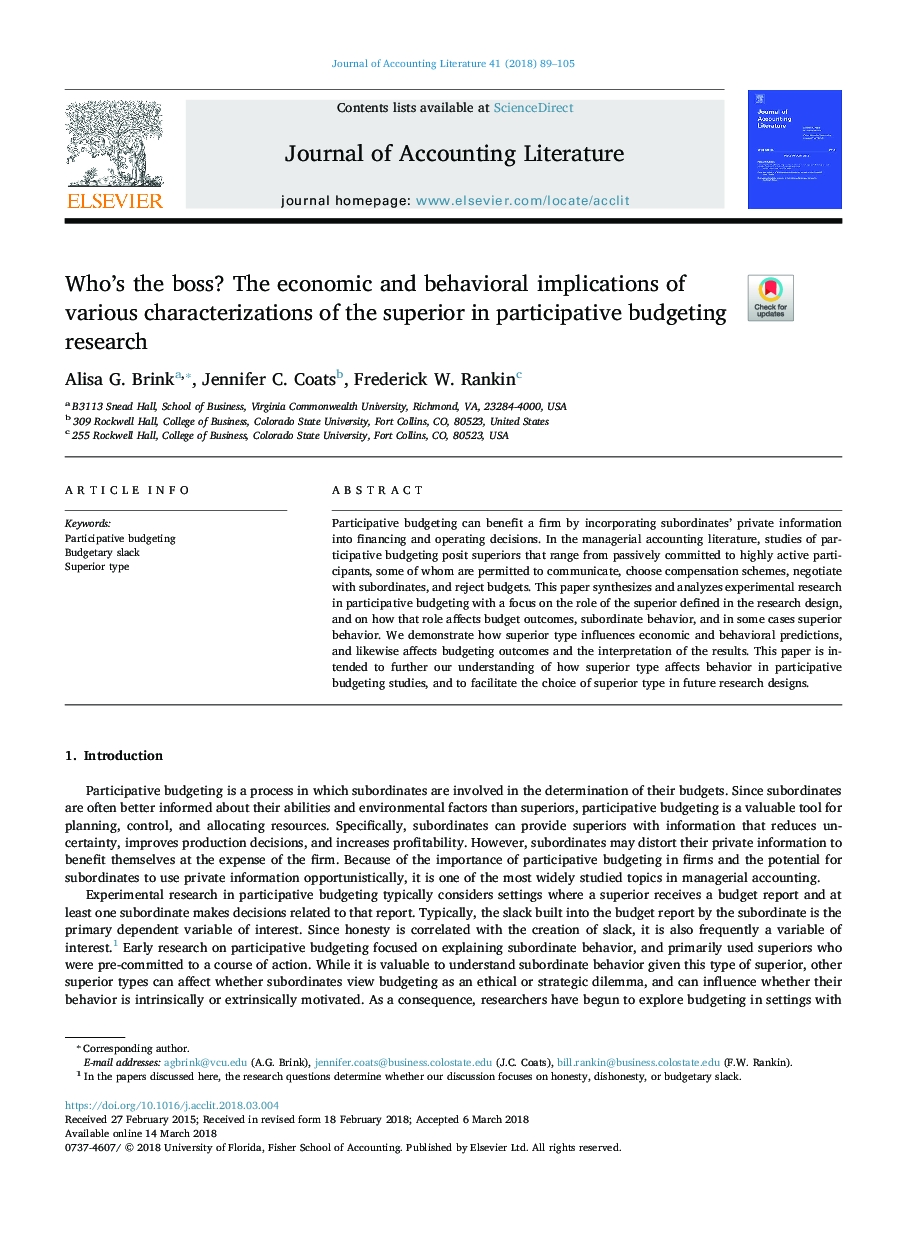| Article ID | Journal | Published Year | Pages | File Type |
|---|---|---|---|---|
| 7415675 | Journal of Accounting Literature | 2018 | 17 Pages |
Abstract
Participative budgeting can benefit a firm by incorporating subordinates' private information into financing and operating decisions. In the managerial accounting literature, studies of participative budgeting posit superiors that range from passively committed to highly active participants, some of whom are permitted to communicate, choose compensation schemes, negotiate with subordinates, and reject budgets. This paper synthesizes and analyzes experimental research in participative budgeting with a focus on the role of the superior defined in the research design, and on how that role affects budget outcomes, subordinate behavior, and in some cases superior behavior. We demonstrate how superior type influences economic and behavioral predictions, and likewise affects budgeting outcomes and the interpretation of the results. This paper is intended to further our understanding of how superior type affects behavior in participative budgeting studies, and to facilitate the choice of superior type in future research designs.
Keywords
Related Topics
Social Sciences and Humanities
Business, Management and Accounting
Accounting
Authors
Alisa G. Brink, Jennifer C. Coats, Frederick W. Rankin,
